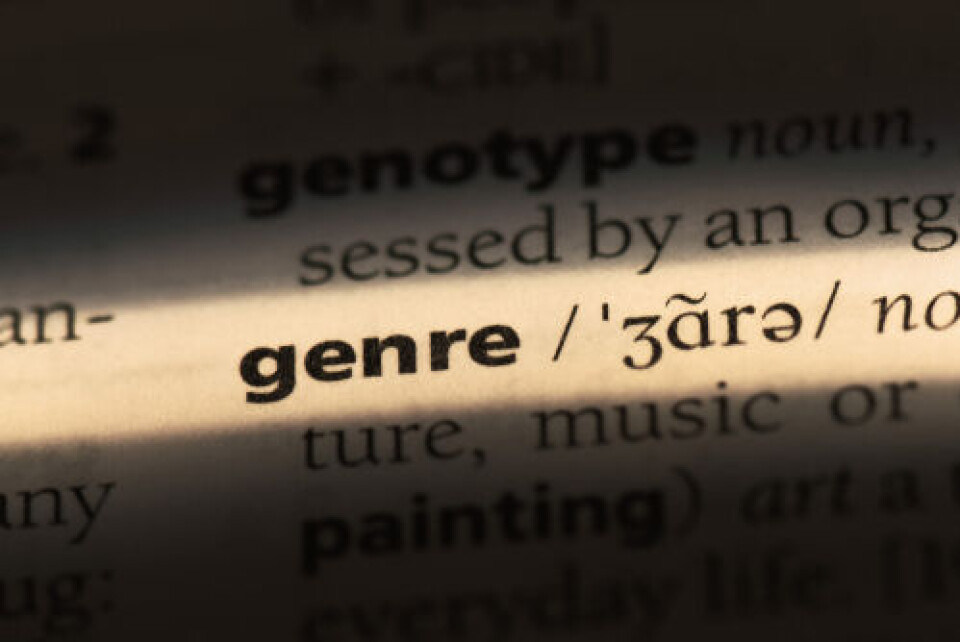-
Learning French: the origins and meaning of gratin
Understand the etymological roots of this beloved dish with a crispy, cheesy topping
-
Learning French: what does comme par hasard mean and when should it be used?
A sarcastic saying to describe something unsurprising or coincidental
-
Can you master these 10 French tongue twisters?
As well as being a fun party trick, these can help you master pronunciation of difficult sounds
Really speak like a local… use these French filler words
The Connexion selects five of these words that do not mean much but are used to fill empty spaces in sentences - how many do you know?

Just like English speakers, French people use filler words more extensively than they would often admit or expect.
Filler words - tics de langage in French - bear the same function as English equivalents such as ‘like’, ‘I mean’ ‘just’ and ‘you know’; they are words of no value that fill empty spaces in sentences.
It can be hard to talk about filler words because they are rarely written and usually appear only in spoken conversation.
These words are often used unconsciously by both French and English speakers during conversations - think about how many times you may hear “you know” in conversations.
They are not the same as small talk or trivial, ‘empty’ conversations about nothing in particular but really just function as words to fill voids when stringing our sentences together.
An excellent example of this style of ‘empty’ conversations is seen in a French sketch called Parler pour ne rien dire (Speaking to say nothing) from French stand-up comedian Raymond Devos.
Trucs, bidule and machin - various French words for ‘thing’ - also do not count as filler words, as they are more used when you cannot find the exact word for an object, or you want to express yourself quickly.
Read more: Learning French: Five ways to push through the pain barrier
Here is our list of five of the most common French tics de langage used in French
Genre
Genre is the French equivalent for ‘like.’ It is intragenerational and is often used to try to clarify the meaning of something that appears unclear.
In English, you might hear someone (usually a younger person) say this; “it was like, a really good film”.
It is not to be confused with “genre?”, a form of question signifying something is very hard to believe or very suspicious that it raises questions, or faire genre to characterise someone who is ‘pretending to’ do something or trying to ‘play a part’.
Example:
-”Je suis descendu faire les courses, ça m'a pris genre 10 ou 15 minutes.” (I went grocery-shopping. It took me about 10 to 15 minutes”)
Du coup
Du coup is arguably France’s most common filler word. French people use ‘du coup’ in an attempt to connect or piece two ideas together, instead of pausing in a sentence.
Example:
-“J’avais trop de travail hier soir du coup, j’ai oublié de le rappeler.” (I was overwhelmed with work yesterday and forgot to call him back.”)
-“Bon, du coup, qu’est-ce qu’on fait?” (Now what do we do”)
Bah
Bah is not a word per se, but can be characterised as a tic de langage as it is commonplace in spoken French for many of the same reasons. ‘Bah’ is mostly used to fill silence in a sentence, or can be used to raise suspicion over what someone says.
Bah might be used where an English speaker would shrug their shoulders, or exhale, sigh, or “umm”, because they are unsure of something. It is not the equivalent of the American ‘duh’.
Example:
*Question asked
-”Bah…je sais pas, qu’est-ce que tu crois? On était devant le policier et bah… on a rien dit.” (Bah…I don’t know. What do you think? We were facing the police officer and…bah…we said nothing.”
En mode
En mode is the current tic de langage favoured by the younger generations to describe something.
Example:
“J'étais assis avec mes potes, en mode chill.” (I was sitting, chilling with my friends.)
“La meuf s’est pointée, en mode balec rien à foutre.” (The girl came in like she could not give a damn.)
En vrai
En vrai is the last tics de langage in this list.
It is often used when someone does not agree with someone else or wants to put a clear emphasis on an element of the sentence. It is the equivalent of ‘for real’ in English.
Example:
“Nan mais en vrai, tu me saoules. J’ai pas que ça à faire.” (Nah for real, you are annoying me. I have better things to do.)
Other honourable mentions you might hear include En fait, wesh, tu vois, et tout, grave.
Bonus sentence:
Du coup, vous avez compris, lecteurs de The Connexion? C’est pas difficile en vrai. Genre vous faites des phrases en mode ‘je sais parler francais’ et le tour est joué. Bah voilà, c’est tout.
Can you think of any other French filler words you have come across in France, or even some you use yourself? Tell us at news@connexionfrance.com
Related articles
Jsp, Jtm: How many of these French text shorteners can you work out?
Is your French good enough to pass nationality language test?
























